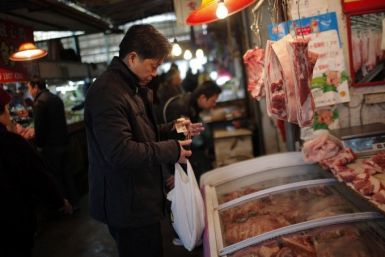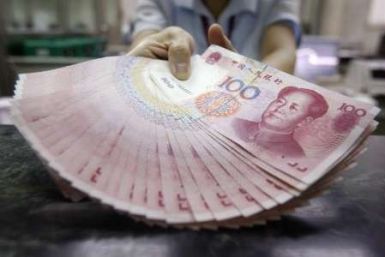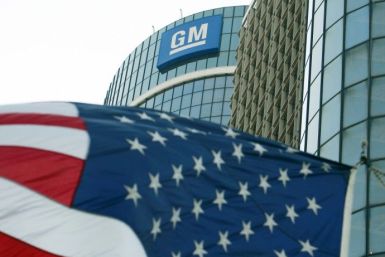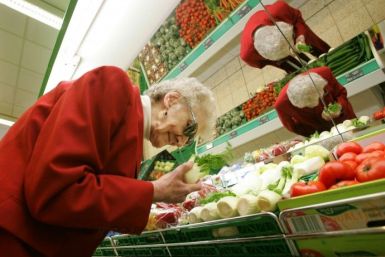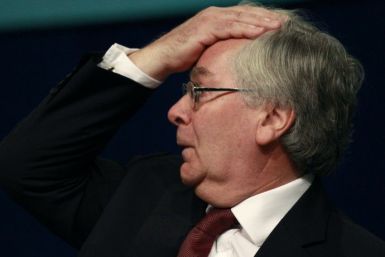In response to swelling inflationary pressures, China extended a special reserve requirement ratio hike for six of the country's largest banks.
Monetary tightening in China should be gradual as consumer inflation is unlikely to surpass 5 percent in 2011, an adviser to the Chinese central bank said.
China is stepping up its efforts to contain inflation, even as the latest economic report indicates that inflation hovers around a 28-year high of 5.1 percent in November.
Economists are more positive about economic growth in 2011 in the United States, according to a survey by the Wall Street Journal.
Asian stocks chalked up modest gains on Monday, while the benchmark U.S. Treasury yield hit a six-month high in response to upbeat U.S. data, helping shore up the dollar.
Asian stocks rose on Monday as investors took in their stride China's latest attempt to cool inflation and fresh vows to tackle price pressure, while upbeat U.S. economic data helped
China will ratchet up efforts to quell inflation in 2011 while pushing forward economic restructuring to help sustain robust growth, state media said on Sunday after the close of an annual policy-setting conference.
China's inflation for November surged to a 28-month high, rising 5.1 percent year-on-year. Moreover, the inflation was driven by China's problem areas.
Precious metals fell across the board in the week to December 10 as a cooling China weighed on demand hopes but the yellow metal remained better alternative in the group amid lingering worries over the euro-zone debt and dollar's ability to play safe-haven.
Prices to Buy Gold held firm in London on Friday, ending of what one London trader called another roller-coaster week some 1.7% lower for Dollar and Sterling investors but unchanged vs. the single Euro currency.
U.S. import prices in November rose at their fastest pace in a year as petroleum and food costs maintained their upward trend, according to a government report on Friday that hinted at a pick up in imported inflation.
China's central bank on Friday increased the amount of money that lenders must keep on reserve for the third time in one month, a move to mop up excess cash in the economy and rein in inflation.
U.K.'s producer prices index fell to 0.3 percent in November from 0.6 percent, mainly due to a rise in fuel and food prices, a report by the Office for National Statistics said.
Outside the US and UK - where today's no change decision from the Bank of England left interest rates near 33-year lows beneath inflation - emerging economies are also flirting with sub-zero real rates of interest, Japanese investment bank Nomura's London office notes.
Having just touched an all-time high in price, demand for copper is expected to be very strong in the coming years, driven primarily by China’s insatiable hunger for commodities of all kinds to support its relentless program of mass urbanization.
Annual inflation in Germany hit two-year high in November mainly driven by rising energy and food prices, data showed on Thursday.
The Bank of England (BoE) continued to maintain its base rate at 0.5 percent, as the economic recovery continues to remain uncertain and financial crisis continues to worsen in the eurozone.
The Bank of England's Monetary Policy Committee held interest rates at 0.5 percent and left its total 200 billion pounds of quantitative easing purchases unchanged on Thursday, as widely expected.
The U.S. economy will begin to show signs of improvement in 2011 as major indicators such as housing and consumer spending begin to improve by mid-2011, according to an annual outlook report from Wells Fargo.
The markets for equities and government bonds have returned to their long-term pattern of moving in opposite directions as a result of a U.S. tax cuts deal that is expected to boost spending there.
South Korea chose to freeze its key interest rates on Thursday, after hiking rates twice this year, as the global economic recovery slows down and tensions rise on the border.
Germans are now the world's number one Gold Bar buyers. Germany's swivel-eyed gold bugs simply show more imagination than journalists, policy-makers and academic economists.









